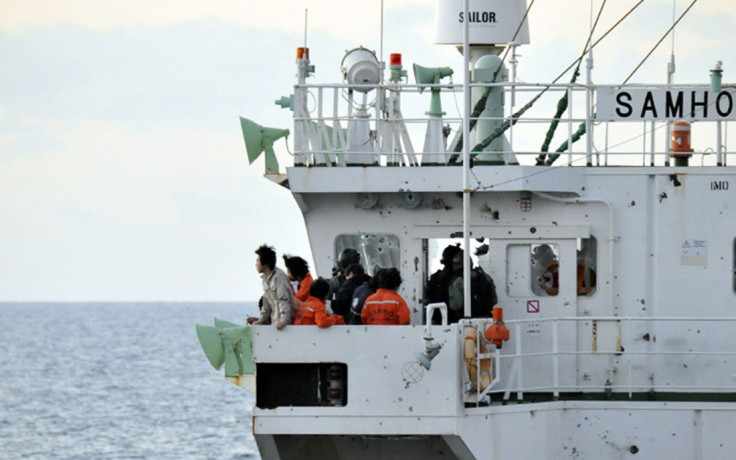War In Somalia As Pirates, Suicide Bombings, Drought Ravage East African Country

Monday was a deadly day in Somalia, culminating with a Somali pirate ship hijacking an oil tanker in the first instance of pirate commandeering off the coast of the East African country in five years. Earlier in the day, a “bloodthirsty” suicide car bomber blew up near a hotel in Somalia’s capital city of Mogadishu, killing at least 13 people and injuring 14 others.
Both incidents occurred at a time when Somalia has been suffering from a deadly drought and the Somali Civil War has been raging on since 1991, for 26 years.
Read: Al-Shabab Islamic Terrorist Group Leader Surrenders To Somalia Military
The Islamic militant group al-Shabab claimed responsibility for the car bomb attack Monday morning. The group also claimed two attacks in major January; one ended in at least 28 people dead in another hotel in Mogadishu, and another killed at least 57 Kenyans in military base in Somalia. The group has been ravaging Somalia, but has lost most of its territory to African Union peacekeepers supporting the Somali government, which is backed by the UN.
The pirate attack later in the day, on the other hand, was not thought to be organized by any extremist terrorist group. But officials weren’t entirely sure who to attribute the attack to — organized pirates, or farmers who took desperate measures, as they claim to be.
Read: How Many People Died In Mogadishu, Somalia Explosion From Car Bomb?
"The men who are holding it claim that they are fishermen who suffered from the illegal fishing in the area,” Ali Shire Mohamud Osman, the district commissioner in the town of Somali town Alula, told the BBC. “However, if we confirm that they are pirates, I will ask them to leave the area immediately. Otherwise, we will see how we can save the vessel.”
Eight Sri Lankan nationals made up the crew onboard the oil tanker that was overtaken, but there have been no reports on the crew’s fate thus far.
After the height of Somali pirating six years ago — 237 attacks occurred in 2011 — authorities cracked down on security measures. For several years, they seemed to work; in the past three years, waters near Somalia have only seen four attempted hijackings. But after Monday’s news, officials were becoming concerned that crews have been too relaxed with their vigilance, said Graeme Gibbon-Brooks, the head of private maritime security company Dryad Maritime Intelligence
"The way that the authorities react now is crucial," he said.
© Copyright IBTimes 2024. All rights reserved.






















